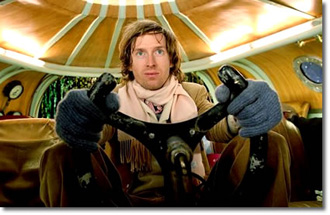|
|
A-List: AuteursBy Josh SpiegelJuly 2, 2010
Wes Anderson Of the many current auteur directors, Wes Anderson might be the most divisive. He’s perhaps the most obvious working director to choose, because just about everyone who watches and appreciates movies only needs to look at a freeze-framed image from one of his films, whether it’s Rushmore or The Darjeeling Limited, to know it’s one of his films. Anderson’s style is well-known; you may call it fussy or twee, or you may embrace it, as I do. Whatever the case, Anderson is an auteur, not only because he has such a strong hand in the scripts of the films he directs, but for the many hallmarks apparent in his filmography. Even when he’s working on a stop-motion animated adaptation of a Roald Dahl story, you can count on Anderson finding a way to get a quirky, memorable soundtrack of songs from the 1960s and 1970s into the picture. Other notable standbys of Anderson’s films are certain actors, from Bill Murray (who’s made an appearance of some kind in each of the man’s films, except for his debut, Bottle Rocket) to Owen Wilson (a frequent writing collaborator) to Jason Schwartzman. Another great staple of Anderson’s work (to me, at least) is his use of space, and the idea that shooting a film in widescreen doesn’t mean there shouldn’t always be plenty to look at. Various shots from The Royal Tenenbaums, The Life Aquatic, and even Fantastic Mr. Fox provide a feast for the eyes, as long as you know where to look for the various details. Anderson has detractors (and though I’m not one of them, I readily admit that he’s a director you either love or hate), but his style is one of a kind, even if others have tried to copy him unsuccessfully.
|

|
|
|

|
Friday, November 1, 2024
© 2024 Box Office Prophets, a division of One Of Us, Inc.


